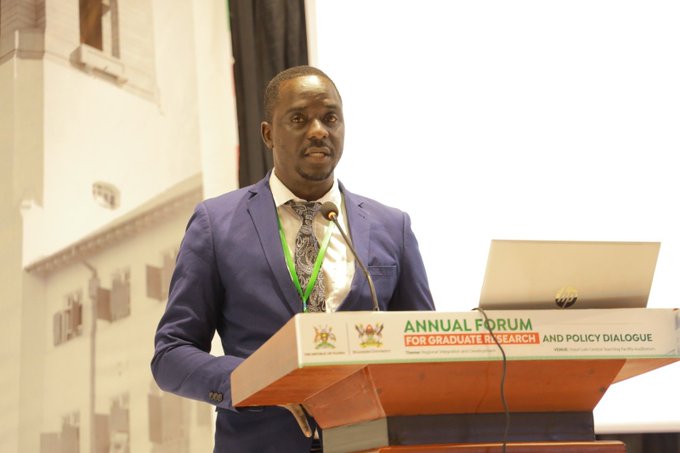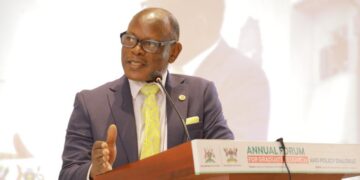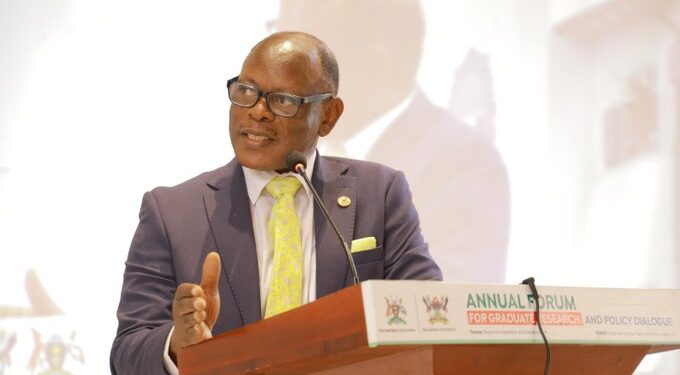Makerere University Vice Chancellor, Prof Barnabas Nawangwe, has said a country that has a high PhD per capita progresses faster than a nation that doesn’t invest in higher education.
Prof Nawangwe was on Thursday speaking during the two-day Annual Forum for Graduate Research and Policy Dialogue at Makerere University Yusuf Lule Central Teaching Facility (CFT2) Auditorium.
The dialogue aimed at bridging the gap between academia and industry attracted seasoned researchers, early career researchers (especially doctoral students at Makerere) and stakeholders in the policy terrain to a dialogue on research and policy.
“In the AI world, that we are living in today, it has been said that those who know, will progress and those who do not know will be left behind,” he noted.
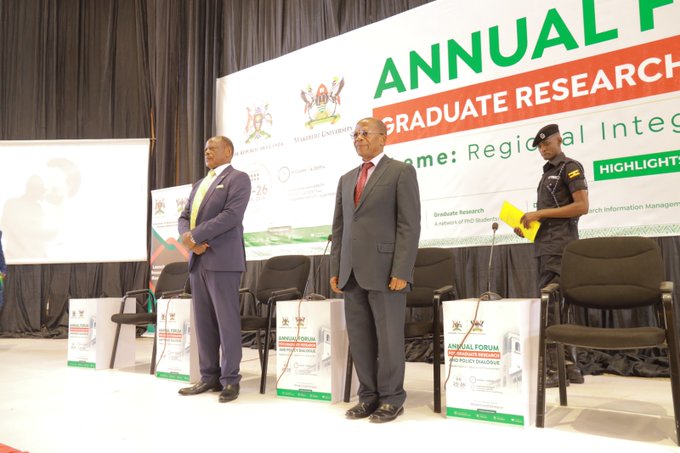
According to Prof Nawangwe, 30 years ago, china was not so different from Uganda today, but they managed to embrace the knowledge economy and invested in higher education.
“For instance, the UK with a population of 66 million people, has over 300 universities, and China has 3,000 universities which can cater for 46,000 students. China, today, produces over 100,000 PhDs annually while Africa produces only 6,000 PhDs annually and both regions have the same population of 1.2 billion people.”
He added: “Uganda, today has about 2,500 PhDs in the whole nation. These numbers should speak to the potential of growth as an economy concerning the knowledge economy.”
Luckily, Prof Nawangwe pointed out, the government of Uganda has directly invested in research at Makerere University.
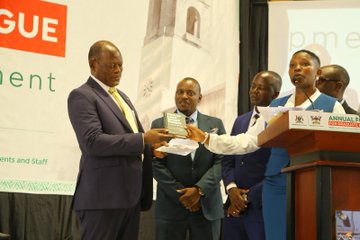
“But with the future that lies ahead of us, this is the time for the government to invest even more in research and innovation because the industrialisation of our nation will only come from PhD students.”
He added: “Therefore, I urge the government through you Hon. Dr Muyingo, to fund and establish a scholarship for graduate students so that together, we can unlock the potential of our country.”
Speaking at the event, Ms Clare Cheramoi, President of PhD Fellows at Makerere University, commended Prof Nawangwe, saying “his open-door policy has allowed us to address our issues as graduate students”.
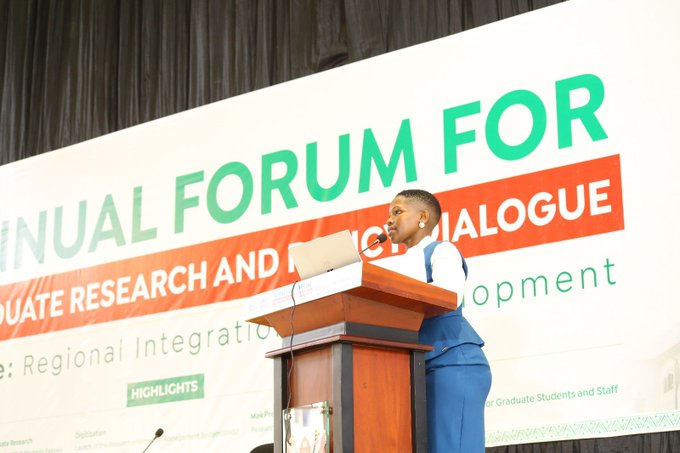
Prof. Edward Bbale, the Director of Makerere Directorate of Research & Graduate Training, said Makerere’s target is to have 35% of students as graduate students with 10% of these being international students.
“Giving both Graduate students and researchers a sense of belonging to a meaningful scholarly community. Today, I have immense pride in the forum because it helps enhance the capacity of our students to engage in policy formulation as we contribute to societal development.”
Prof. Bbale said it has been proven that the returns on higher education are greater than the returns from lower-level education, as such, the Ministry of Education should continue to invest in scholarships for graduate students.
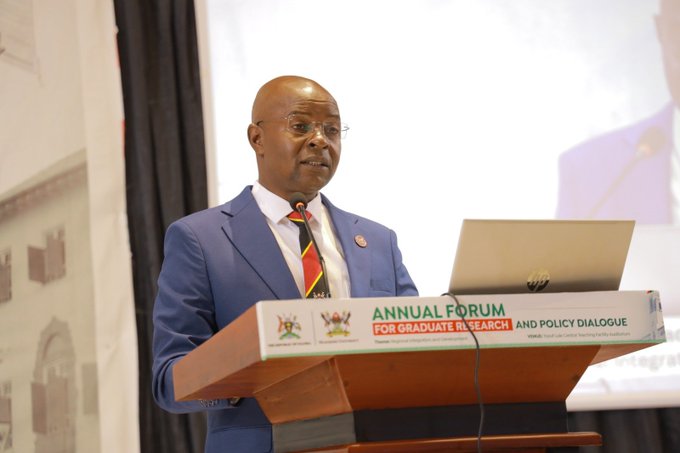
Ms. Adella Grace Migisha, a PhD Student, presented the key issues of her research paper which focuses on Environmental influence on electricity reliability in Uganda’s grid system.
“We need to diversify our sources of power to combat over-dependence on hydroelectric power, among other deductions from her research,” she noted.
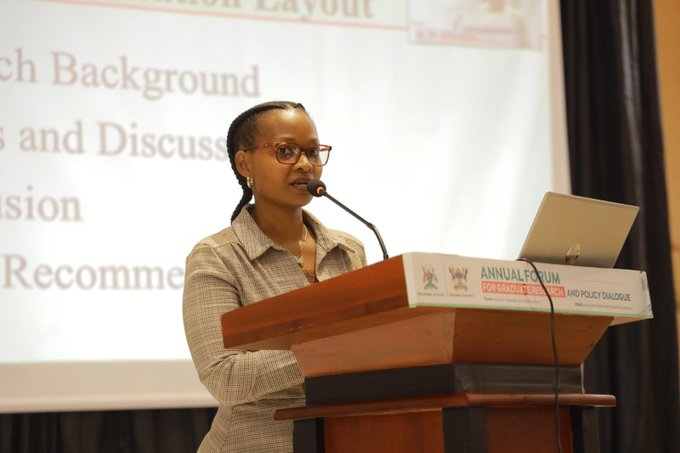
Mr Eric Jacob Onek, PhD Student at Makerere University, whose PhD research focuses on the Immunological and Parasitological impact of co-deployment of IRS and bed nets for malaria mosquito vector in Uganda also presented findings of his research.
Over 70 research papers will be presented during the course of two days.
